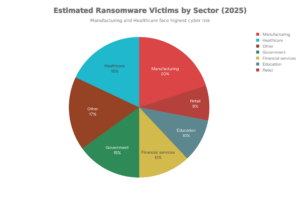Nation State Threat Actors in Cybersecurity: A Global Overview
In today’s interconnected world, nation state threat actors represent some of the most sophisticated and persistent dangers in the realm of cybersecurity. These actors often leverage advanced persistent threats (APTs) and sophisticated malware to achieve their strategic objectives, ranging from espionage and intellectual property theft to critical infrastructure disruption and political manipulation. Understanding the specific threats posed by nation states such as Iran, Russia, North Korea, China, and others is crucial for organizations aiming to defend themselves effectively. Here’s an overview of these threats.
Iran
Iranian cyber threat actors are known for their capabilities in espionage, data destruction, and denial-of-service (DoS) attacks. Groups such as Elfin Team (APT33), Helix Kitten (APT34), and Charming Kitten (APT35) have targeted industries ranging from energy and telecommunications to government and financial services. Their tools and techniques often involve spear-phishing campaigns and the deployment of destructive malware like Shamoon.
Recent Activities and Targets:
- Energy Sector Attacks: Iranian groups have a history of targeting the energy sector, including attacks on oil and gas companies in the Middle East and beyond. These attacks often aim to disrupt operations and cause significant economic damage.
- Government Espionage: Iranian actors have engaged in extensive cyber espionage campaigns against government entities, aiming to gather intelligence and disrupt governmental functions.
- Critical Infrastructure: Attacks on critical infrastructure, including water and transportation systems, highlight the broader strategic objectives of these groups.
Russia
Russian cyber operations are among the most sophisticated and aggressive, with notable groups such as Fancy Bear (APT28) and Cozy Bear (APT29) leading the charge. These actors are infamous for their involvement in high-profile incidents, including the NotPetya ransomware attack, SolarWinds supply chain attack, Ukraine’s power grid attacks and various espionage campaigns against NATO countries.
Recent Activities and Targets:
- Election Interference: Russian cyber actors have been implicated in attempts to influence elections in multiple countries, utilizing tactics such as hacking, disinformation, and social media manipulation.
- Ransomware Attacks: The NotPetya ransomware attack, which initially targeted Ukraine, spread globally and caused billions of dollars in damages, showcasing Russia’s ability to launch devastating cyber assaults.
- Espionage Campaigns: Russian groups have conducted extensive espionage operations against government, military, and private sector targets, stealing sensitive information and intellectual property.
North Korea
North Korean cyber actors, such as the Lazarus Group, are notorious for their financially motivated cybercrimes and state-sponsored espionage. Their activities include bank heists (e.g., the Bangladesh Bank heist), cryptocurrency thefts, and disruptive attacks like the WannaCry ransomware outbreak.
Recent Activities and Targets:
- Financial Theft: North Korean groups have successfully stolen hundreds of millions of dollars through cyber attacks on financial institutions, including central banks and cryptocurrency exchanges.
- Ransomware Campaigns: The WannaCry ransomware attack affected hundreds of thousands of computers worldwide, causing widespread disruption and financial losses.
- Espionage and Sabotage: North Korean actors have targeted South Korean infrastructure, military systems, and government networks, aiming to gather intelligence and disrupt operations.
China
Chinese cyber threat actors, such as Red Apollo (APT10) and Double Dragon (APT41), are renowned for their industrial espionage campaigns aimed at stealing intellectual property and sensitive data from companies and government agencies. Their targets are diverse, spanning technology, aerospace, pharmaceuticals, and more.
Recent Activities and Targets:
- Industrial Espionage: Chinese groups have engaged in large-scale theft of intellectual property from Western companies, particularly in the technology and aerospace sectors, to bolster domestic industries.
- Healthcare Data: Chinese cyber actors have targeted healthcare organizations, stealing sensitive patient data and research information, especially during the COVID-19 pandemic.
- Government and Military: Extensive espionage campaigns against government and military organizations aim to gather strategic intelligence and disrupt adversary operations.
Pakistan
Pakistan-based cyber threat actors have been involved in a variety of cyber espionage campaigns, particularly against India and other regional adversaries. These actors often focus on stealing sensitive military and government information to gain strategic advantages.
Syria
Syrian cyber actors, such as the Syrian Electronic Army, have conducted cyber attacks to support the Assad regime. Their activities include defacing websites, spreading propaganda, and disrupting communications of opposition groups and foreign entities critical of the Syrian government.
How to Enrich your Defense Capabilities
Deceptive Bytes employs a proactive approach to cybersecurity by creating a dynamic deception environment within the endpoint. This technology misleads attackers about the real nature of the endpoint, systems, and data. By dynamically responding to threats in real-time and providing false information, Deceptive Bytes can disrupt reconnaissance efforts and delay or prevent attacks, throughout the attack kill chain.
The platform’s adaptive deception technology introduces uncertainty and confusion into attackers’ operations, making it significantly harder for them to achieve their objectives. By creating convincing fake information on the endpoint, Deceptive Bytes prevent access for attackers from real systems, reducing the risk of data exfiltration and financial loss.
Conclusion
Nation state threat actors pose a significant and evolving threat to organizations worldwide. Their sophisticated tactics require equally advanced defense mechanisms. Deceptive Bytes provides a cutting-edge solution by integrating dynamic deception into endpoint security. This proactive approach not only confuses and misleads attackers but also provides organizations with critical insights into emerging threats. By adopting Deceptive Bytes’ technology, organizations can enhance their resilience against APTs and safeguard their valuable assets from nation state cyber threats.
Don’t Miss a Thing
Sign up today and we’ll send an email when new posts come out.
We collect and use this information in accordance with our privacy policy.


